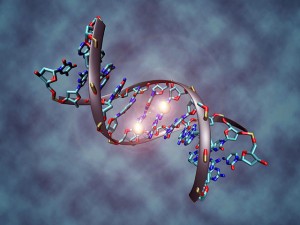Epigenetics could be the key to understanding how cancer originates, when it mutates, and how it spreads. Researchers at the Boston University School of Medicine (BUSM) believe that different types of cancer are caused by an “on and off” switch in the epigenome. While many scientists believe that many cancers originate in cells called progenitor cells, they cannot concoct a model that explains how cancer spreads from the progenitor cell and mutates into many forms as it continues to grow in a person’s body.
One of the lead researchers, Sibaji Sarkar, posited “there should be a general mechanism that initiates cancer progression from predisposed progenitor cells, which likely involves epigenetic changes.” The researchers believe that the theory of an epigenetic switch is supported by the growth of tumors, which go through many different stages. The team believes that if cells can be altered to become cancerous and remain stuck in their stage of growth while they replicate out of control, then there must also be an off switch to this uncontrolled replication. They also suspect that epigenetic changes can determine the rapidity of growth and the mutability of the characteristics of the cancer and tumors.
Although Sarkar’s team has not yet found specific epigenetic code that causes these mutations and growth, he believes that their hypothesis will cause other scientists to focus their attention on the epigenome and find ways to prevent progenitor cells from spreading and mutating into malignant tumors.
This epigenetic research relates to our study of the relationship between the epigenome and cancer. Specifically the absence of an active p53 protein would prevent a certain part of the DNA from being read and the cell would therefore lack a protein that inhibits the cell cycle. This would cause uninhibited cell division and the spread of cancer.
Methylation of DNA



Leave a Reply